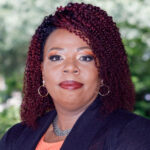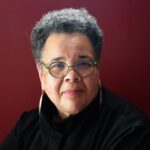Religion and Social Sciences
Syllabi - Topic: Religion and Social Sciences - 50 results
Select an item by clicking its checkboxA course by Alex Neff at Acces-France Study Abroad focused on "how the history of religion in France particularly the relationship between the Church and the State, continues to shape the religious landscape of the country today."
A course by James Kitts at the University of Washington on the "organizational dynamics of new religious movements" with attention to their origins, "recruitment, conversion, and charisma."
A 2011 course by K. Brynolf Lyon at Christian Theological Seminary that asks how understandings of "human emotional life deepen our understanding of God and of humans in relation to God."
A 2012 course by Helen Noh at Tyndale Seminary provides an "overview of major personality theories with regard to their development, philosophical assumptions, theoretical concepts and their clinical implications."
A 2017 course by William H.C. Propp at UC San Diego that seeks an "ethnographic description of the ancient Israelites" through a study of "various topics in the Hebrew Bible through the interpretive lens of Cultural Anthropology."
A 2011 course by Roger Greene at Mississippi College on the "Jewish and Greco-Roman world into which Christianity was born."
A 2017 course by Lisa Hoff at Gateway Seminary provides an "introduction to cultural anthropology"
A 2011 course by Ann Grodzins Gold at Syracuse University "explores a range of aims, strategies and genres for writing religion in multiple contexts of culture, history and politics."
A 2009 course by Charles Brown at Albright College explores "the role religion plays in creating and maintaining culture through popular cultural expressions such as music, television, motion pictures, sports, and fashion."
A course by Ira Chernus at the University of Colorado at Boulder studies "the values, ideas, and sentiments of the 1960s counterculture" with attention to religious issues and "how the popular books of the counterculture created a new 'myth' that served as an ideal for social change."
A 2011 course by Adam Porter at Illinois College on American "civil religion."
A 2013 course by Susan Ellfeldt at Tyndale Seminary offers "a critical appraisal of basic theoretical concepts in Family Systems Theory."
A 2011 course by Gerardo Marti at Davidson College "pursues sociological analysis at the intersection of race-ethnicity and religion" in America.
A 2007 course by James Jones at Rutgers University explores "some of the religious, psychological and psycho-physiological dimensions of meditation. Students will be exposed to the mediational practices and models of human selfhood from three different religious traditions â Hinduism, Christianity, and Buddhism â and several relevant and controversial areas in contemporary psychology and psychophysiology."
A 1998 course by Ron Grimes at Wilfred Laurier University studies "private and public rituals which relate society to the supernatural; magical beliefs and practices and the sociological and epistemological dimensions of witchcraft."
A 2001 course by Ron Grimes at Wilfrid Laurier University "is an introduction to the study of ritual, concentrating specifically on rites of passage, both traditional and experimental, and largely, but not exclusively, in North America."
A 2011 course by Gerardo Marti at Davidson College "pursues sociological analysis at the intersection of race-ethnicity and religion. Our focus in this class centers on American congregational communities (whether it be church, temple, or mosque)â especially in relation to processes of immigration and transnationalism."
A 2014 course by Elfriede Wedam at Loyola University Chicago on "the many dimensions of religion-how it is defined, how people express it, how they experience its power" in the American context.
A 2010 course by Gerardo Marti at Davidson College "pursues an understanding of both the "social-ness'" of religion itself and the mutually influencing interactions between religion and its social environment" with focus on American society.
A 2012 course by Josh Packard at the University of Northern Colorado analyzes religion in America.
A 2006 course by Jim Watts at Syracuse University uses ritual theories to interpret practices with special attention to "cultural practices involving purification and pollution."
A course by Stephen D. Glazier at University of Nebraska-Lincoln offers a "cross-cultural examination of the structure, form, and functions of religious belief."
A 2008 course by Christian Smith at the University of Notre Dame "provides an introduction to the long-standing and wide-ranging debates in sociology about secularization" and "what happens to religion under the conditions of modernity."
A 2013 course by Christopher Ellison at the University of Texas-San Antonio examines "the dominant theories of religion and look at the ways in which sociologists use multiple types of empirical data . . . to study religion as a social institution."
A 2001 course by Courtney Bender at Columbia University analyzes "religion as it is embedded in and related to other aspects of social and cultural systems" with a primary focus "on contemporary North American religions."
A 2010 course by Charles Brown at Albright College "is designed to provide an opportunity for the student to develop a general sociological understanding and perspective with which to evaluate, interpret, and understand religion and religious institutions."
A 2004 course by Stephen Glazier at the University of Nebraska "examines religion as a social phenomenon and attempts to relate religious organizations to other aspects of social life."
A 2012 course by Roger Finke at Pennsylvania State University reviews "the social foundations of religion, explore(s) the diverse religious movements, and examine the relationship between religion and the larger culture."
A 1999 course by Lutz Kaelber at Lyndon State College serves as "an introduction to the study of religion and its relations to other social institutions and spheres."
A 2011 course by Tricia Bruce at Maryville College studies "religion as a social institution that can be an agent of social change, control, cohesion, and division. . . . (and) the ways in which religion intersects with other social institutions."
A 2002 course by Ivan Strenski at the University of California, Riverside, explores concepts of the sacred and the tabu.
A 2013 course by Kevin Dougherty at Baylor University "explores organizational aspects of religion, including organizational forms, prominent theories, and common methodologies."
A 2007 course by Howard Culbertson at Southern Nazarene University offers an overview of religious beliefs and practices such as sorcery, totemism, shamans, voodoo, cargo cults.
A 2004 course by Jason Sloan at the University of Findlay "explores the contemporary (not classical) psychology of religion, that is, the newly emerged cognitive science of religion."
A course by Colleen Moore at the University of Wisconsin "assumes some sophisticated background in either psychology or religious studies" as it "examines religions and religious phenomena from the point of view of empirical psychology."
A 2007 course by Nathaniel Wade at Iowa State University that explores the "psychological elements of religious life."
A 2010 course by Ajit Das at the University of Minnesota, Duluth, about "the scientific study of religion study of religion using psychological theories and methods."
A 2005 course by Benjamin Beit-Hallahmi at the University of Haifa introduces "students to the two main approaches in the psychology of religion, the personal and the social."
A 2007 course by James Jones at Rutgers University introduces "students to the role religion plays in the lives of individuals and to the field of religion and psychology."
A 2012 course by Wendy Cadge at Brandeis University "introduces . . . the tools and concepts central to the sociological study of religion in the United States."
A course by Stephanie Mitchem at the University of South Carolina employs anthropology of religion methods to study religious healing.
A 2011 course by Jennell Botello at Florida International University traces "the historical development and influence of religion in the United States and particularly its influence on American culture."
A 2013 course by Wendy Cadge at Brandeis University asks "what religion is, how it is present and influential in public and private life, and how and where people from different religious traditions interact in the contemporary United States. Specific attention is devoted to peopleâs religious practices, religious communities, and the identities people develop through their religious traditions."
A course by Martha Reineke at the University of Northern Iowa explores "from a psychoanalytic perspective the emergence of the capacity for religious belief in children," with particular attention to Freudians, "object relations theorists," and Lacanians.
A 2019 course by Peter Gottschalk at Wesleyan University considers religion "as a phenomenon . . . the meaning of 'sacredness' & 'the sacred' and question their comparative use" in various religious traditions.
A 2018 course by Jill DeTemple at Southern Methodist University "is designed as an intermediate course" to introduce students to "the border as a geographic and cognitive location rooted in history."
A 2017 course by Jill DeTemple at Southern Methodist University introduces "International Economic Development as a global social institution which often intersects with social constructions of gender, religious institutions, and religious world views."
A 2018 course by Jill DeTemple at Southern Methodist University introduces "several social scientific approaches to the academic study of religion. We will investigate the history and use of anthropological, sociological, and psychological theory and method in relation to the study of religion, especially as these fields relate religion to broader cultural, societal, and physiological fields of knowledge."
A 2019 course by Madison Tarleton at the University of Denver/Illiff School of Theology introduces "students to the academic study of religion" through a survey of "early theorists and anthropologists as well as examine how these theories evolved over time."
This 2021 course by Chelsea Starr at Eastern New Mexico University is an introduction to the basic perspectives with which sociologists analyze the relationship between religion and society. Explores the social processes at work in congregations and denominations, new religious movements, conversion/deconversion, religious identity, secularization, minority religions, inequalities and religion, and current trends.

